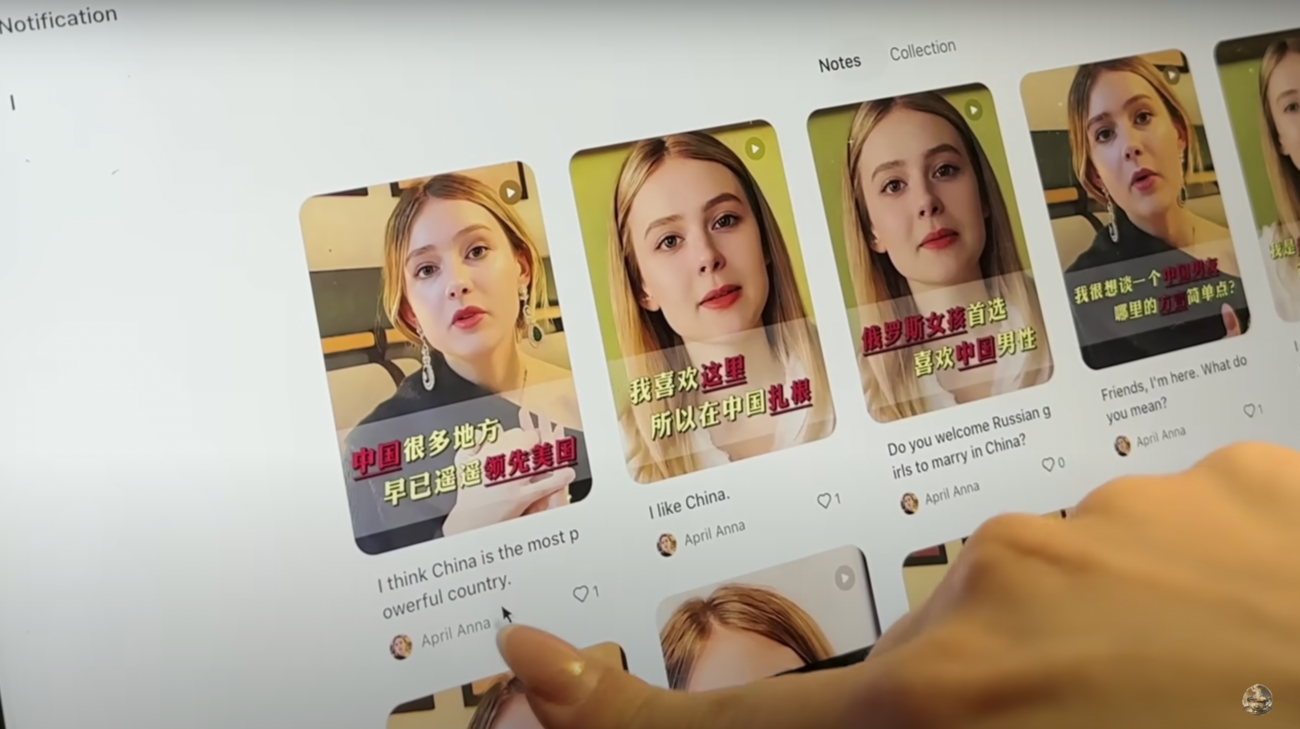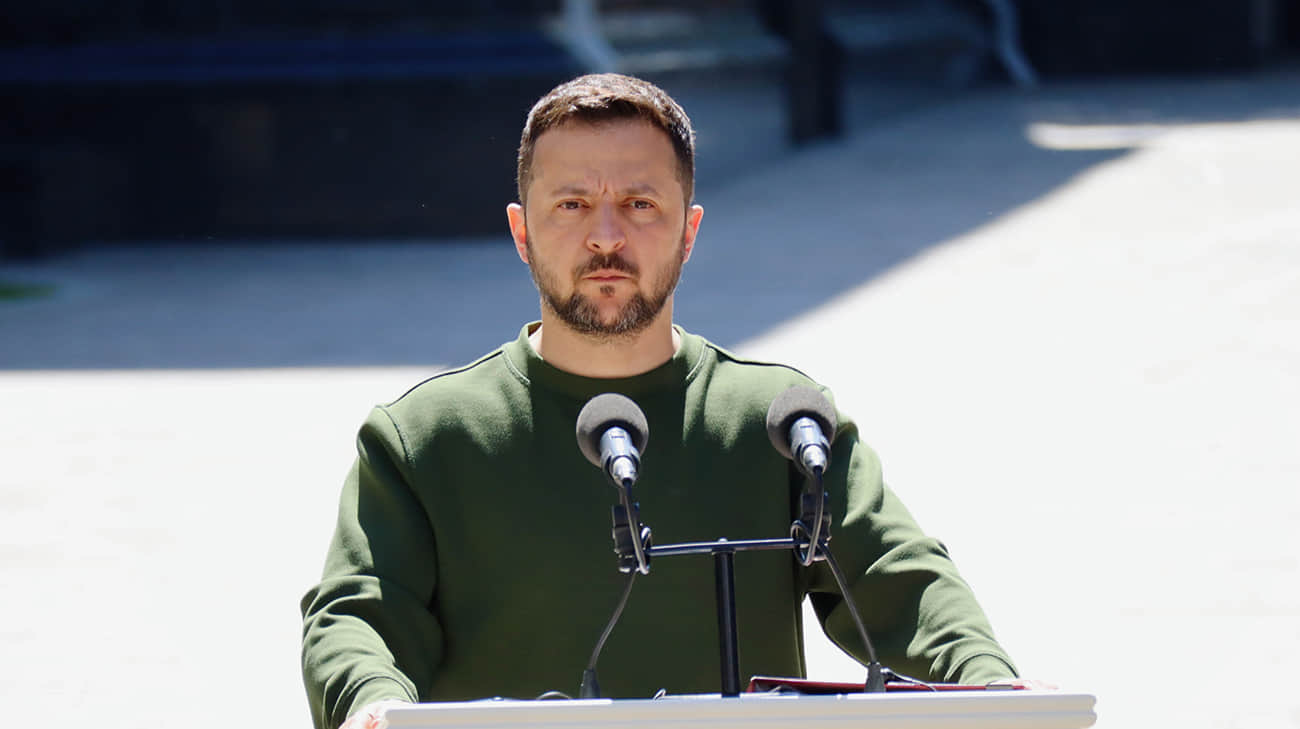Chinese propaganda creates AI doppelganger of Ukrainian blogger to advertise Russian goods
In early May, Chinese social media began to spread videos created with Artificial Intelligence (AI), in which women of different nationalities promote friendship between China and Russia in Chinese. One of those who recognised her face in Chinese propaganda videos was a 20-year-old Ukrainian student and YouTube blogger Olga Loiek.

In early May, Chinese social media began to spread videos created with Artificial Intelligence (AI), in which women of different nationalities promote friendship between China and Russia in Chinese.
One of those who recognised her face in Chinese propaganda videos was a 20-year-old Ukrainian student and YouTube blogger Olga Loiek.
Source: BBC; Voice Of America
In the AI-generated videos, she is presented as a Russian woman who speaks Chinese, advertises Russian products, and promotes friendly relations between China and Russia.
Loiek says that she has never spoken Chinese and does not support Russia's policy towards Ukraine. She believes that her face is used to spread disinformation and propaganda.
"I saw my face and heard my voice. But it was creepy because I saw myself saying things I never thought about", the woman said.
The deepfake videos using Loiek's likeness appeared on Chinese social media Douyin and Bilibili. The woman found about 35 accounts using her face, some of which had tens of thousands of subscribers.
Fake avatars for these videos are generated based on images of women taken from the internet.
Loiek shared her experience on her YouTube channel and urged viewers to be careful with what they see online.
After Olga's fiance wrote about fake accounts to Twitter, HeyGen, the company which developed a tool for creating AI deepfakes, blocked the use of Olga’s likeness.
HeyGen's AI-based technology has previously been used to create similar deepfake videos featuring other people, such as the face of Donald Trump or Taylor Swift.
"National and international regulation has been slow compared to the explosive growth of AI," says Kayla Blomquist, an expert on technology and geopolitics at the University of Oxford.
Earlier, scientists found numerous cases of AI tools being used for deception. The researchers are calling on governments to develop AI security laws that should consider the systmens’ potential for fraud.
Support UP or become our patron!



